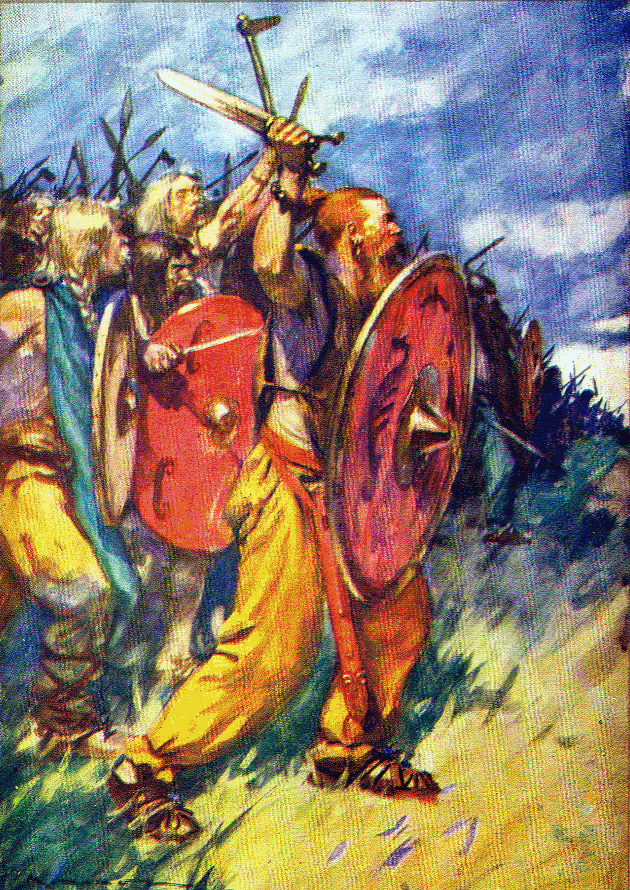 This year is the anniversary of the Varian disaster. You can scarcely turn around without bumping into an exhibition, commemorative magazine or popular book on the subject. This major event, 2000 years ago, saw the destruction of three Roman legions with their allied contingents, probably amounting to some 20,000 men, at the hands of the German tribes.
This year is the anniversary of the Varian disaster. You can scarcely turn around without bumping into an exhibition, commemorative magazine or popular book on the subject. This major event, 2000 years ago, saw the destruction of three Roman legions with their allied contingents, probably amounting to some 20,000 men, at the hands of the German tribes.But I was intrigued to discover that, a century earlier (or, strictly speaking, 113 years earlier, in 105 BC), Rome suffered a worse disaster at the hands of German tribes. This time, it wasn't Rome's treacherous Cheruscan allies who were to blame, but the dreaded Cimbri, migrating from Jutland to find new lands in Gaul.
Introducing the Cimbri and their Teutonic cousins, the Roman historian Velleius Paterculus writes that "these peoples were soon to become famous by reason of the disasters which they inflicted upon us and we upon them."
And what a disaster. We lack the full account of Livy, that great historian of the Roman Republic, but we know that, in his 67th book, he described how, "defeated by these same enemies, consul Gnaeus Manlius and proconsul Quintus Servilius Caepio were deprived of both their camps; according to Valerius Antias, 80,000 soldiers and 40,000 servants and camp followers were killed near Arausio".
There must have been great and heroic deeds on the battlefield. One of these is recorded in Plutarch's biography of Sertorius, who allegedly "swam across the Rhone, shield and breastplate and all, against a strongly adverse current,though he had lost his horse and had been wounded in the body, so sturdy was he and so inured to hardships by training".
But why am I commemorating this catastrophe today? Because, allegedly, the battle was fought on October 6, another big day for Rome.